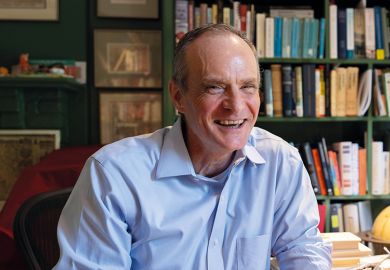This book is firmly located in urban economics, and it adopts a deliberate and provocative approach to the usual subject headings and methodological debates in this area. It will be attractive to undergraduates in geography, economics, sociology and politics as well as to taught masters in courses in public administration, urban policy, public policy, transport and government.
Students and teachers will be attracted to its no-nonsense style and its focus on recognisable subject areas. The text works its way through 18 chapters on subjects, including "Cars, pollution and accidents", congestion, mass transit, land; "Water, sewers, fire and garbage"; education, race and space, housing, homelessness, crime; "Drugs, guns and alcohol"; and urban economic development. Each chapter is followed by questions suitable for those wanting to check on their progress and for teachers looking for succinct questions to put to students.
This approach works well; as a textbook, City Economics has much to recommend it. Indeed, for many readers the text will be a welcome relief from the esoteric world of Pareto optimality, comparative advantage, externalities, consumer surplus and elasticities, concepts that would normally dominate in this kind of book. Brendan O'Flaherty's approach is more likely to reveal the importance and relevance of these concepts and tools than the usual methodological exposition.
Readers must, however, guard against overreliance on the text. On matters of detail, O'Flaherty's views on some subjects diverge from the policy debate. On cars and pollution, he states that "the argument is about efficiency and not justice", when most transport analysts are acutely aware of the injustices involved in road safety (poor pedestrians being killed by relatively affluent car drivers in lower income countries) and in public transport expenditure, where spending disproportionately benefits the rich rather than the poor.
O'Flaherty also states: "We could not maintain our health, our productivity, our sense of freedom and psychological adjustment without automobiles." This is naive in the extreme, at variance with social and environmental analysis and not substantiated by the evidence. Such strange notions detract from the book's value and would require careful dissection and interpretation in a teaching environment.
There is also a lack of empirical rigour that is worrying in a book on urban economics. O'Flaherty states that "aeroplanes are expensive". Has he not come across the low-cost airline phenomenon and its massive impact on flying in Europe? This has changed the economics of aviation dramatically, and the author of a textbook on urban economics should know this.
There is a tension in the book between the demands of explaining urban economics and the temptation to produce policy prescriptions and remedies.
The author strays into policy, and this does not work very well. Policy development is a difficult task. It requires a stronger evidence base than we find here and a stronger methodological framework that can embrace specialist tools, such as scenario analysis and backcasting.
Nevertheless, City Economics is challenging and fascinating and can be recommended.
John Whitelegg is professor of sustainable development, Stockholm Environment Institute, York University.
City Economics
Author - Brendan O'Flaherty
Publisher - Harvard University Press
Pages - 587
Price - £37.95
ISBN - 0 674 01918 0
Register to continue
Why register?
- Registration is free and only takes a moment
- Once registered, you can read 3 articles a month
- Sign up for our newsletter
Subscribe
Or subscribe for unlimited access to:
- Unlimited access to news, views, insights & reviews
- Digital editions
- Digital access to THE’s university and college rankings analysis
Already registered or a current subscriber?



